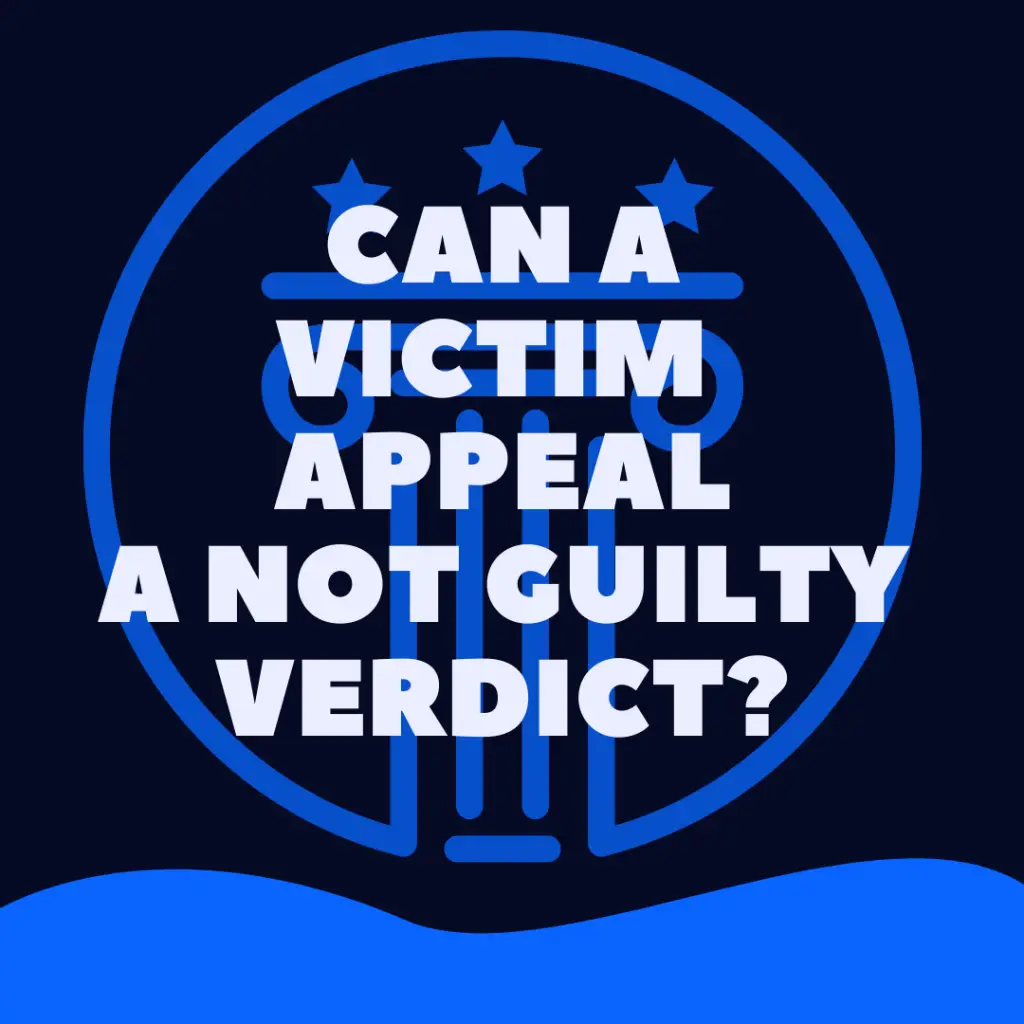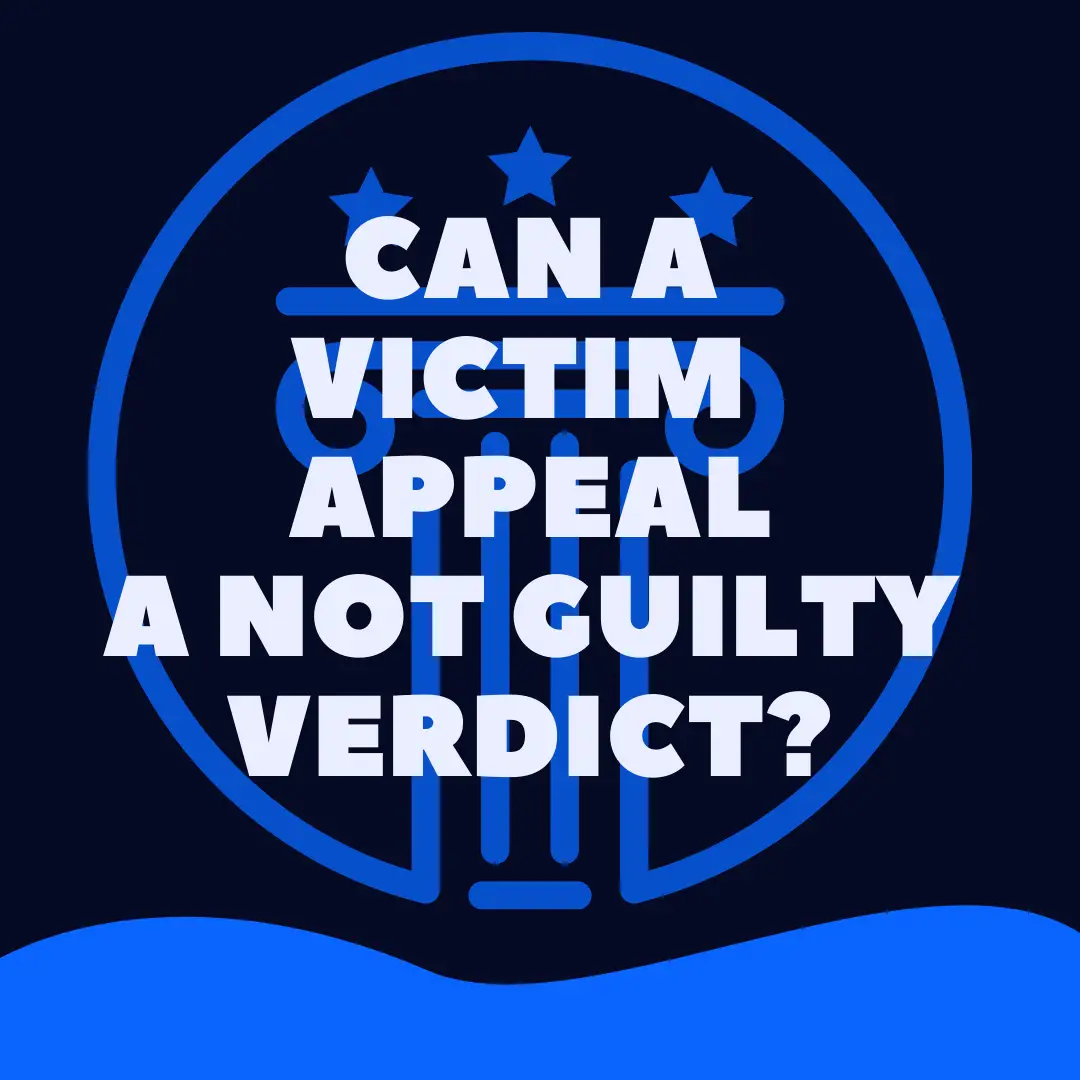Generally, no, a victim is not a party to the case and has no standing to file a notice of appeal subsequent to a not guilty verdict.
In the article that follows, we’ll explain more about the victim’s role in a criminal proceeding.
Can A Victim Appeal A Not Guilty Verdict? (EXPLAINED)
Disclaimer
The contents of this web page are for informational purposes only, and nothing you read is intended to be legal advice. Please review our disclaimer about law/legal-related information on this website before taking action based upon anything you read or see.
Who or What Is The Victim In A Criminal Case?
The “victim” in a criminal case is not just a person who was impacted or harmed by the actions of the defendant.
The “victim” is a legal term, which is usually defined specifically in each state’s laws.
Generally, a victim is given a psuedo party status to a criminal case, and as a result, has certain rights (though not all of the rights).
In Oregon, for example, a victim has the right (during the pendency of the proceeding) to:
- receive protection from the defendant
- to be notified in advance of hearings involving the case
- to attend hearings
- to have someone attend hearings with them
- to have personal information protected from the defendant
- to speak at sentencing
There are many rights a victim is afforded, and it is important that someone who is a victim in a criminal case seek out information about those rights.
What Is The Victim’s Role In The Criminal Case?
It really depends on the case.
The victim in a criminal case might be an important witness to the outcome of the case.
Or not.
One things is for sure…the victim is neither the plaintiff, nor the defendant.
The victim is not officially a “party” to the case.
This means that the victim does not have the same rights to appear and participate in the criminal case like the government or the defendant do.
In limited situations, a third party can file “a motion to intervene” in a case, and ask to be granted party status in a case.
This would allow them to participate in the case much more like the plaintiff and defendant.
In general, it is rare for third party status to be granted to anyone else in a criminal case.
Why Can’t A Victim Appeal The Jury Verdict?
To appeal a judgment/verdict/final decision, an individual or entity must have what is called “standing” to appeal.
Most states define who has standing to appeal a criminal case by statute.
And in most cases, these statutes are specific about who can appeal–usually only the defendant.
Thus, since the victim is not a party to the case, does not have any rights to participate in the case beyond those granted to a victim, and by statute does not have the standing to file an appeal, the victim can’t do anything about a jury outcome.
What Can A Victim Do If The Jury Verdict Is Not Guilty?
Most victims of a crime who are anxious to receive some form of justice consider whether it would be worthwhile to pursue the defendant in civil court.
Rather than spending a lot of money to try and overturn a jury verdict (can’t anyway), the victim would instead hire an attorney early on in the process to pursue remedies in civil court.
After all, just because a jury doesn’t vote to convict an individual, doesn’t mean that a jury in the civil world wouldn’t find for the victim.
(Think about the O.J. Simpson case–he wasn’t convicted of murder but a civil jury did find him responsible for the deaths)
Some of the reasons a civil jury might choose to find a defendant responsible even if a criminal jury acquitted him include:
- the lower burden of proof. A case that does not rise to beyond a reasonable doubt might rise to the level of a preponderance, which is all a civil jury needs.
- different evidence, as some details may be admissible in the civil world that are not in the criminal world, or may be accessible through discovery in the civil world that is not in the criminal world.
- different lawyers (sometimes the lawyer makes a difference).
- different judges (sadly sometimes the judge makes a difference too).
- different jury (yes, this too).
The jury is not supposed to consider the penalty resulting from a conviction.
But in their minds, I think they do anyway.
Juries have an easier time overall awarding money verdicts in favor of the plaintiff than they do sending someone to jail.
Victim’s Counsel
I highly recommend that victim’s confer with legal counsel early in the criminal case.
Lawyers can assist the victim to assert his or her rights in the proceeding, which includes making sure that the victim’s personal information is protected and preventing defense counsel from harassing him the victim.
The lawyer can help them evaluate the likelihood of success in a civil case as the criminal case unfolds.
Wrap Up
Want to learn more about your criminal justice system?
Browse our free legal library guides for more information.
You might also like:
- Is It Illegal To Change Lanes In An Intersection In Idaho?
- Can The Victim Assist The Defendant’s Case?
- How Do Probation Officers Find Out About New Cases?
- What Happens If The Defendant Dies?
- Can a Defense Lawyer Refuse Your Case?
- Examples of Voluntary Manslaughter
- Can You Go To Jail For Egging a House?
- Why Are Lawyers So Expensive?



